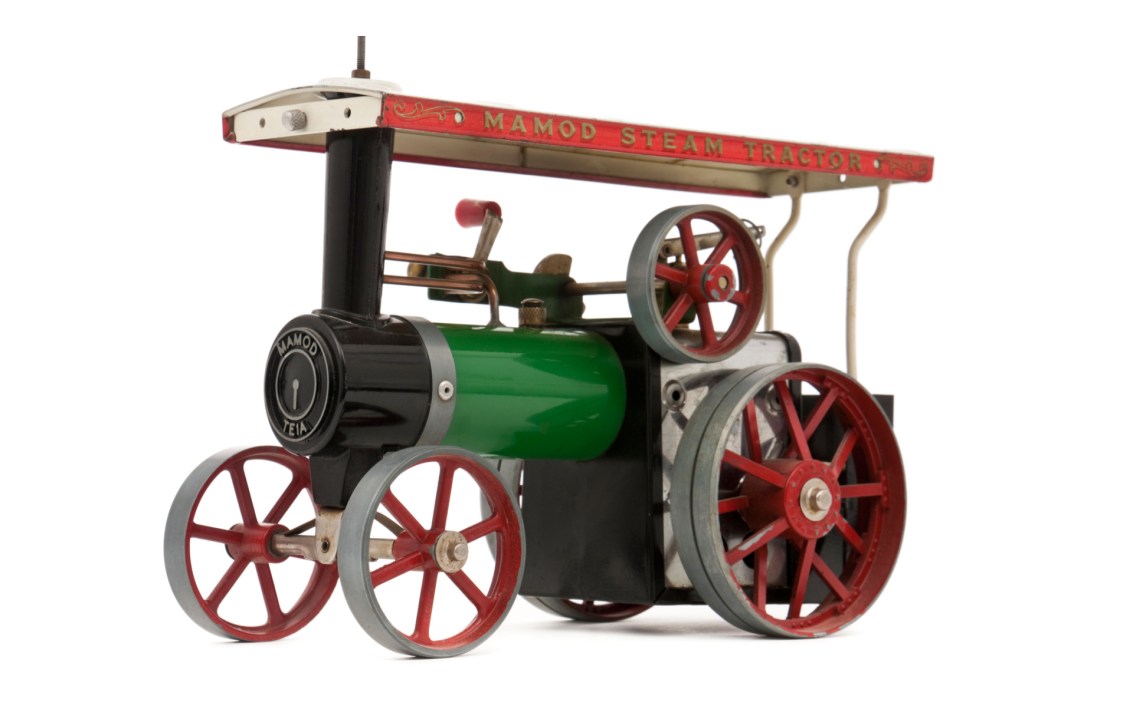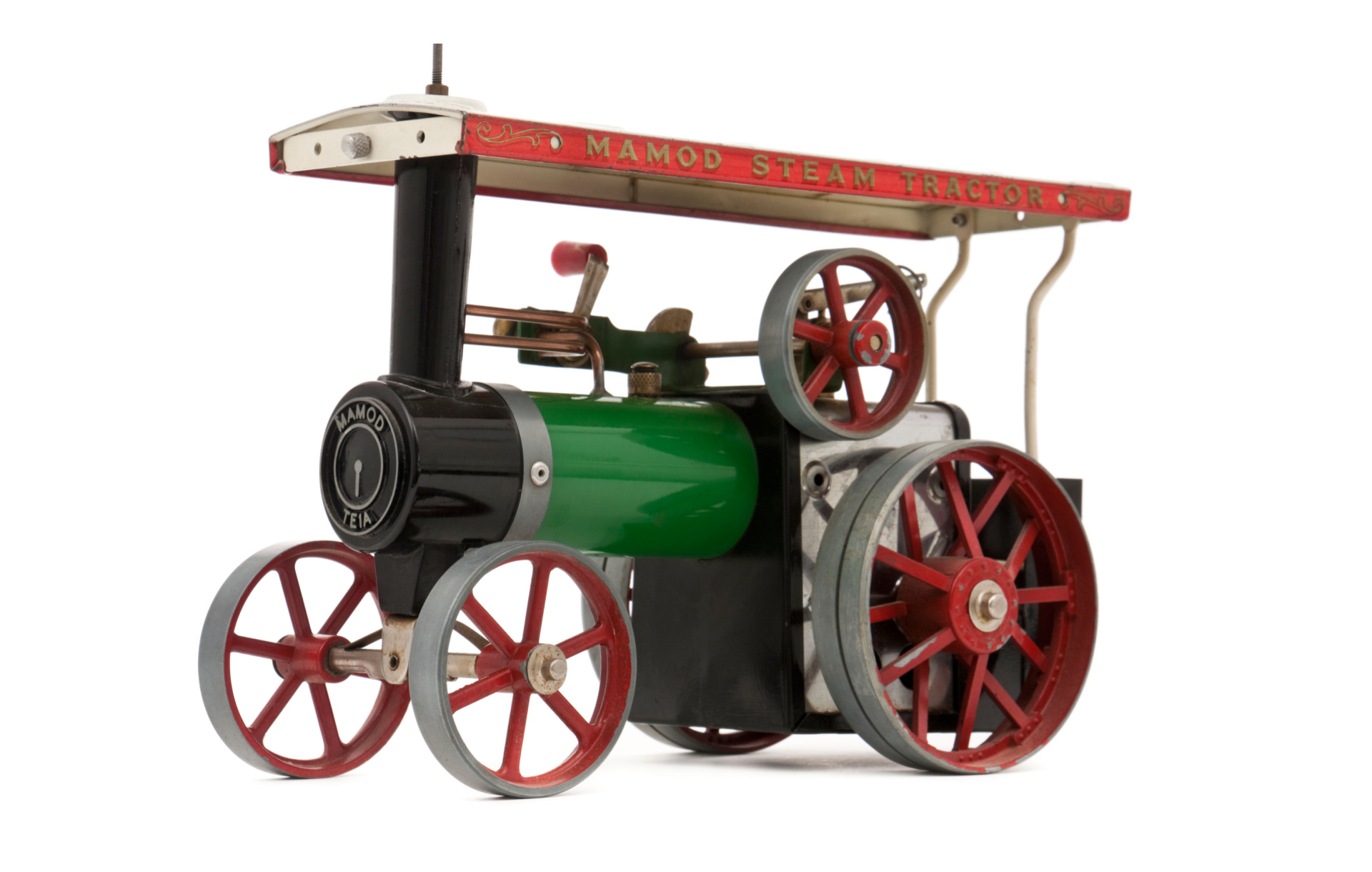Last week, if you’d known what to listen for, you might have heard a chorus of miniature whistles in gardens across the UK. Other sounds too: the whirr of pistons, the hissing of steam from valves. Up and down the nation, enthusiasts were fuelling up their model traction engines and steamrollers and raising steam not in celebration, but in mourning. It was a tiny mechanical wake for Mamod, the Birmingham firm which has made model steam engines since 1936, and which has announced that it is ceasing production. It’s estimated that more than 2.5 million engines have been sold by the company over the years.
As commerce and government push our behaviours down digital channels, older hobbies don’t register
When a beloved brand perishes, there’s rarely a single reason. Like many small manufacturing companies, Mamod had endured a difficult few years. The previous owners cut corners, and somehow managed to lose the rights to one of their classic designs, the SL1 railway locomotive. A new owner stepped in last year, hoping to turn the company around – only to be met with legislation criminalising unlicensed ownership of the solid fuel tablets that drive Mamod’s products. For decades these hexamine tablets were freely available. Now, apparently, they’re a terror risk – and the resulting financial hole, coupled to rocketing rents, seems to have derailed the company for good.
Small business has cash-flow crisis and shuts factory. So, what’s new? Actually, part of the problem here is careless legislation accidentally criminalising a harmless and long-established pastime – and in the process, wrecking the last commercial manufacturer of steam engines (very small ones, for sure, but the principle is the same) in the city of Matthew Boulton and James Watt.
It’s not just the steamers that have felt the clunking fist of blanket regulation. The 30,000 members of the British Model Flying Association (BMFA) have been building and flying their model aircraft legally and safely since 1922: longer than British Airways has been airborne, and almost as long as the Royal Air Force. They have a long-standing and mutually constructive relationship with the Civil Aviation Authority: in many ways, the gold standard of how these things should be handled.
But even here, red tape has been thrown around with thoughtless abandon. Since 2019, new regulations meant for drones have affected the entire sport of model flying, imposing an annual licensing scheme for larger model aircraft. It’s pointless to plead that the kind of people who indulge in dangerous or illegal flying are hardly likely to apply for registration. Instead, responsible hobbyists have been lumbered with a new expense and the anxiety that comes with it. ‘It is seen by many to be nothing more than a tax with no relevant purpose or benefit,’ says Chris Bradbury, the BMFA’s drone support officer. ‘It does leave a bitter taste.’
True, the costs involved are not large (though high by European standards). There are exceptions and workarounds. But it’s yet another unnecessary, joy-sapping worry. Hobbies are supposed to be fun, and even small obstacles can have a ripple effect, turning relaxation into stress, and sometimes – as with Mamod – pushing small businesses over the edge. Mamod’s current owner, Adrian Lockrey, asked the relevant authorities why the statutory consultation on fuel tablets didn’t include steam manufacturers. He was met with incomprehension, and then disregard. ‘They approached a model boat club, who said it wouldn’t affect them,’ he told me when the crisis began to bite. ‘And that was the model industry consulted.’
There are many tales of the unintended consequences of over-zealous regulation, not all from the UK. European rules on bottle caps put a supply-chain squeeze on the manufacturers of Hetman musical instrument valve oil (horn players around the world swear by it). Owners of full-size steam engines, meanwhile, are facing a coal-supply crisis. Net-zero politics forced the closure last year of the last mine in the UK that supplied the high-energy, clean-burning coal that historic engines require. Green alternatives are in development, but are still some way off. Meanwhile operators are having to source steam coal from as far afield as Australia and South America – at far greater environmental cost. Amateur blacksmiths are already obliged to purchase costly imported coke – and are fearful that even this might soon go the way of household coal, which was banned outright last year.
Little of this is deliberate. Legislators don’t generally set out to ruin anyone’s fun – it’s more that they don’t even consider it. But it doesn’t feel entirely coincidental, either. In a computerised world, pursuits such as modelling, crafting and heritage restoration are gloriously offline. They’re all about physical craft; old but characterful technologies, and the ancient pleasure of making something with your hands and operating it with skill. The benefits of switching off and steaming up can be huge (I write from experience). But as mass media, commerce and government all work to push our tastes and behaviours down predictable (and manageable) digital channels, older hobbies don’t register, and don’t fit.
So they are forgotten by government and increasingly – or so it seems – they get trampled. On the day that Mamod called it quits, I lit up my boyhood model traction engine and sent it clattering and wheezing around the garden. My wife didn’t expect it; she laughed out loud in surprise and delight.
That’s a common reaction. In the words of the late Teddy Boston, vicar and steam enthusiast: ‘The steam engine is the nearest thing to a living being made by man.’ Now I can’t speak for the model aviators and amateur blacksmiths but that simple, playful human pleasure is surely common to all old-school hobbies.
It’s reason enough to expect our lawmakers to take care of these quirky liberties; these gentle pursuits of the small battalions. When every model Hurricane is grounded, and the final Mamod steamroller sits cold upon a shelf, we really will have lost the last of England.








Comments